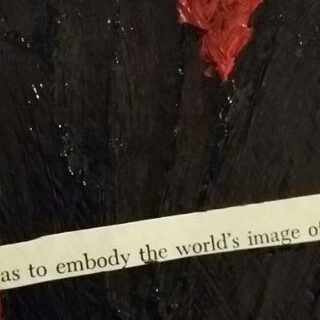 To say that Cleveland Public Theatre’s world premiere production of Rastus and Hattie is transformational undersells how overwhelmingly good it is. Lisa Langford takes a polemic and weaves us a universe of sublime moments, each with the power of a punch, or the passion of a first kiss. The writing is flawless, for every beat, every emotion sends you tumbling into your own crumbling, sends you questioning just how you can be crying and laughing at the same time.
To say that Cleveland Public Theatre’s world premiere production of Rastus and Hattie is transformational undersells how overwhelmingly good it is. Lisa Langford takes a polemic and weaves us a universe of sublime moments, each with the power of a punch, or the passion of a first kiss. The writing is flawless, for every beat, every emotion sends you tumbling into your own crumbling, sends you questioning just how you can be crying and laughing at the same time.
Here’s what you learn going into the show: There is a robot who appears to be African American. There is a woman who is a scientist, and a new mother.
And what you gain after watching the play, deftly directed by local legend Anne McEvoy, is a tumult of the past, present, and future of our collective denial. It leaves you breathless, and at the same time finds so many instances that the polemical ramifications of the subject matter Langford mines overwhelm the human nuance that makes theatre one of the most enduring and important creations we’ve ever known. Nicole Sumlin hits every note with ease in their leading performance as “Needra.” Sumlin is the backbone of the presiding, playing the old comedic turn role of the sideman, and in the exact moment, often in the same scene, can be an overwhelming force of despair. We all want to know just what we are, and what makes us, don’t we?
And it is this question that tugs at the laugh tracks, pulling at your tear ducts, the water-flowing in the hearty belly of hilarious moments. Darius J. Stubbs is superb as “Rastus”, his facial expressions are hauntingly etched portraits of of our racial past and Stubbs gives the play a depth that is as profound as it is heartbreaking. Rachel Lee Kolis and CPT veteran, Adam Seeholzer are effective, and often scene stealing foils as they embody the well-meaning of our country’s “whiteness.” As “Marlene” and “David”, Kolis and Seeholzer allow the audience a glimpse of just how uneasy it is for white Americans to grapple with how familial wealth is tied to our collective history and shame regarding slavery.
Ananias J. Dixon’s “Malik” is the character that great plays rarely have. A black man. An authentically loving and humane black man. “Malik” is “Needra’s” husband, a man who knows his father, his grandfather, and great-grandfather. This simple knowing is perfect and brilliant; it gives the play such a profound glue, for he is present, supportive, and often times keeps Sumlin’s “Needra” from a despair that is staged often, and most times caused by the man, but hardly ever soothed by his presence. Black love is the cherry centered heartbeat of Langford’s work and it’s revolutionary in its versing and pitch-perfect in its execution. The ability of the ensemble to portray ancient tropes through a future lens give us a most human depiction and allows the mirror to show an US, a history spilling out of eyes we ought not continue to hood.


